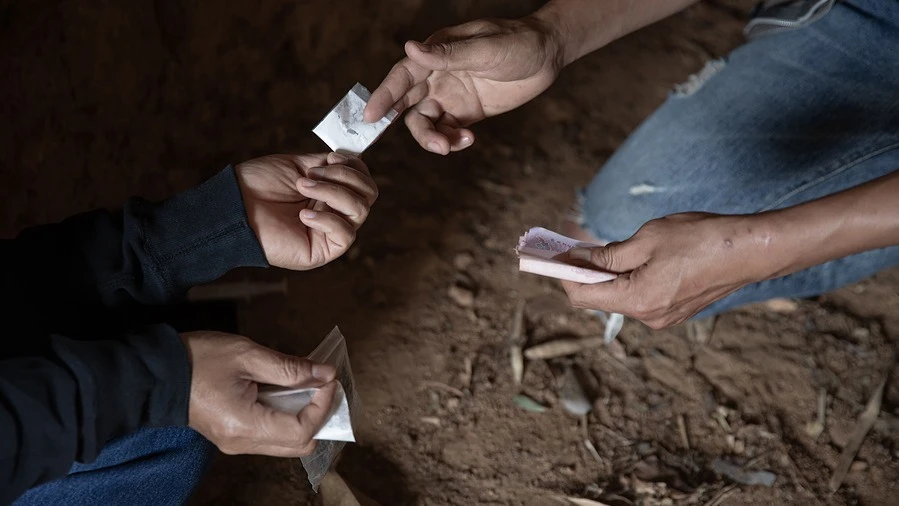Bridging the gap: Agriculture as the key to Tanzania's economy

STRUGGLES to advance the agricultural sector in Tanzania are now taking a different shape as intellectual pursuits are tied to them. It’s normal to come across such kind of discussions on media outlets as well as symposiums at higher learning institutions which are connected to the agricultural field.
These initiatives manifest efforts to put agricultural activities in a scholarly perspective which can significantly elevate the sector that employs almost 75 percent of the country’s population. Among other things, these efforts are directed towards attracting youth to agriculture and uplifting its contribution to the national economy. Agriculture’s contribution to the national economy has dropped from the previous 40 percent to 26 percent.
Two decades after independence in Tanzania was dedicated to poverty alleviation through investment in agriculture. The ‘Ujamaa na Kujitegemea’—(socialism and self-reliance) policy was then introduced by the government aiming at attaining collective agriculture thus making individuals work together through Ujamaa villages.
Ujamaa villages were meant to ensure Tanzanians use the available resources including land to bring about development. Tanzania had a total of 13502500ha of arable land in 2021, according to the World Bank collection of development indicators. However, 60 percent of the world’s arable land is in Africa.
Unlike the post-independence’s Tanzanian agriculture which aimed at self-reliance by avoiding dependence on foreign food aid, the current agricultural initiatives have to be commercialized to match the rest of the world which embraced market economy.
Scholars and proponents of agricultural revolution like the late Prof Damian Gabagambi waged a good battle of simplifying the correlation between development of agriculture and that of other sectors such as business and industrial production. In one of his radio presentation, he revealed that when farmer’s income increases due to good performance of agriculture, they will be willing to extend their expenditure in buying items produced by different firms thus supporting the growth of industrial and commercial sectors.
Awareness like the one by Prof Gabagambi can result into youth joining the sector willingly.
Luckily enough, academicians have continue to drive agriculture forward and this can be revealed by the symposium that took place at Sokoine University of Agriculture (SUA) on December 6th this year aiming at assessing the journey of the agriculture sector in 63 years of independence of Tanganyika.
Prof Daniel Ndyetabula from SUA informed delegates that agriculture is a bridge towards service sector economy which is the dominant feature of the current world economy.
According to Nyetabula, when few individuals engage in agriculture and others in various sectors, it is a sign of development. He calibrated his argument by revealing statistics which showed that one farmer in Germany can feed 105 individuals compared to Tanzania where three years back, a single farmer could feed half a person before the current food security that the country is proud of.
This food security which is with surplus should motivate more searches for international markets for the sector to flourish and make Tanzanians proud of it. Farmers get discouraged when they labour intensively and fail to find markets for their produce, thwarting government’s poverty eradication efforts.
If valued, the contribution of agriculture into the country’s economy can help farmers interpret the world economic trend, thus being able to plan their farming activities accordingly.
Commercializing agriculture
There are two major strategies which the government can embark on to make agricultural sector an attractive business venture which can help to mitigate challenges such as low productivity and poverty that the country face.
One of the strategies to commercialize agricultural sector is for the government providing subsidies to farmers to enable them to cultivate commercially.
Providing subsidies to agricultural exporters can help them scale up operations, ensuring farmers sell all their produce. When farmers earn enough to reinvest in the next planting season, agricultural success becomes sustainable. Securing international markets for Tanzanian produce is crucial.
Another strategy is strengthening of co-operative unions. For years the business on agriculture has been done by the government through co-operative unions. Strengthening them enhances advancement in agriculture as well as providing employment to other experts in the agricultural field who are necessary for the development of the field.
The Tanzanian government and society must view agriculture as a business opportunity. Just as other nations take pride in manufacturing, Tanzania should take pride in producing and exporting crops. Recognizing agriculture’s contribution to the national economy can inspire broader engagement, with a focus on agro-business.
Export success will likely encourage some farmers to transition into export roles, leaving a smaller number of well-equipped farmers to meet market demands. This mirrors advanced economies where a few farmers feed entire populations.
By supporting individuals and cooperative unions, Tanzania could foster the development of significant agricultural companies, embodying the agro-business model and achieving scholars’ vision: fewer farmers, higher productivity, and more substantial economic contributions.
The key to transforming Tanzania’s agriculture lies in modernization and commercialization. Emphasizing market access, strengthening cooperative unions, and aligning farming practices with economic trends can propel the sector forward.
With fewer farmers producing more and reaching high-value markets, Tanzania can achieve a thriving agricultural sector that uplifts the national economy and reduces poverty.
The author is a teacher based in Moshi. He can be reached at [email protected]
Top Headlines
© 2025 IPPMEDIA.COM. ALL RIGHTS RESERVED

























